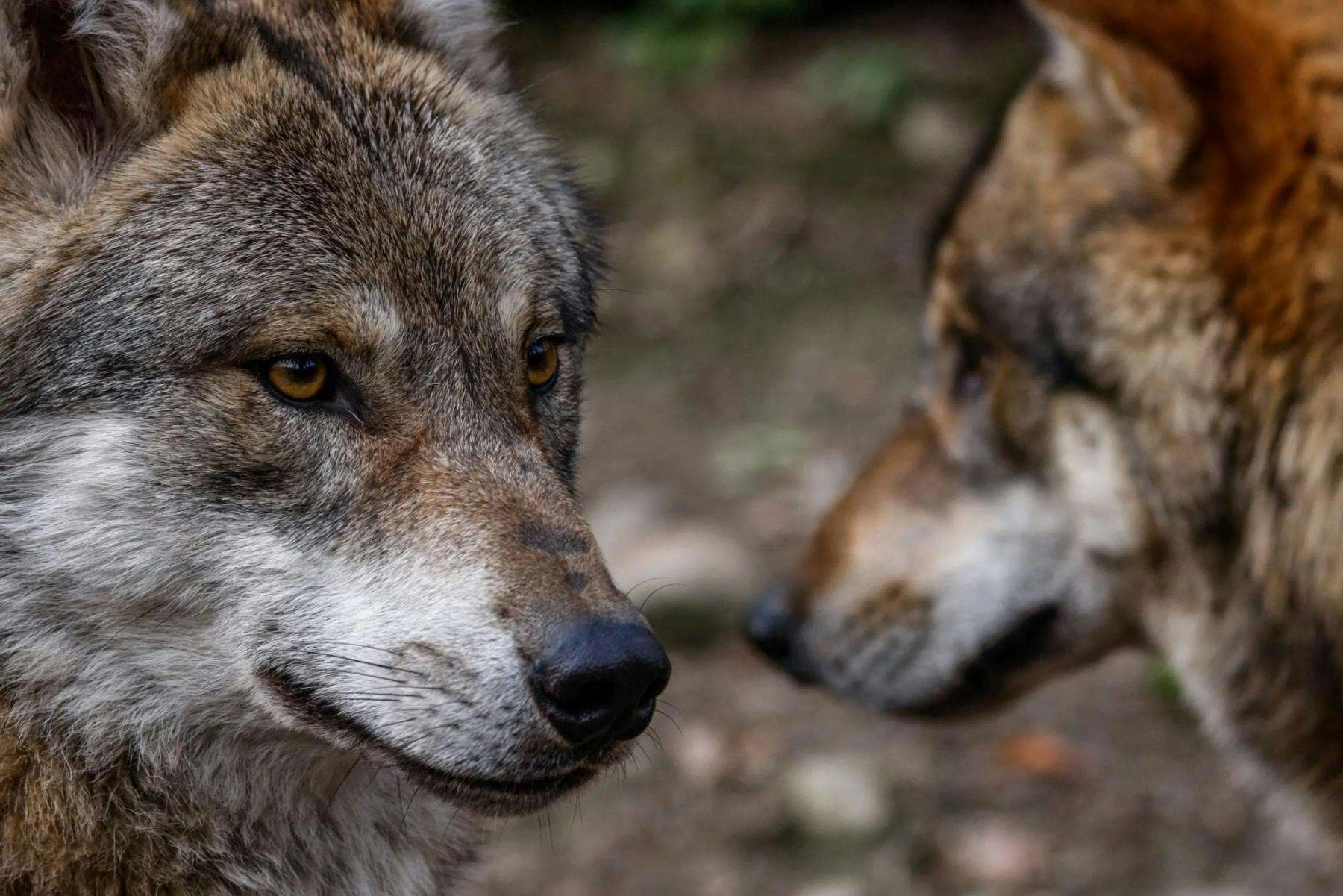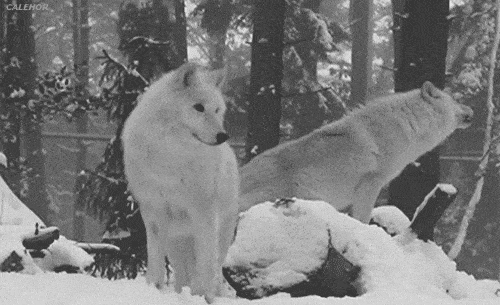October 15th, 2020

No matter who you are or where you come from, you've probably faced several obstacles in life. Encountering difficulties is a natural part of life that unites all of us here on Earth. Whether you're in the middle of a big life challenge right now or are preparing for a future roadblock, there's nothing wrong with needing a little bit of inspiration to get you through the tough times.
There's no better way to get the motivation you need than to hear an uplifting story. The two wolves story, which is a parable in the Native American tradition that has been passed down from generation to generation, will empower you to change your mindset and approach life with a more positive outlook. Here's the real story of the two wolves and how you can use it to start living life more intentionally.
The story of the two wolves is an ancient tale that has been a part of the Native American tradition for generations. Although the exact two wolves story origin is unknown, historians typically attribute the tale to the Cherokee or the Lenape people. The story of the two wolves also has several alternative titles, including "The Wolves Within," "Which One Do You Feed?", "Grandfather Tells" and "The Tale of Two Wolves."

The story features two characters: a grandfather and his grandson. The grandfather explains to his grandson that there are two wolves fighting within him, which is an image that serves as a metaphor for the man's inner sense of conflict. The conversation between the two men goes like this:
“I have a fight going on in me,” the old man said. “It's taking place between two wolves. One is evil – he is anger, envy, sorrow, regret, greed, arrogance, self-pity, guilt, resentment, inferiority, lies, false pride, superiority, and ego.”
The grandfather looked at the grandson and went on. “The other embodies positive emotions. He is joy, peace, love, hope, serenity, humility, kindness, benevolence, empathy, generosity, truth, compassion, and faith. Both wolves are fighting to the death. The same fight is going on inside you and every other person, too.”
The grandson took a moment to reflect on this. At last, he looked up at his grandfather and asked, “Which wolf will win?”
The old Cherokee gave a simple reply. “The one you feed.”
This parable serves as a powerful reminder of the fight that every human being must face. Regardless of the type of person you are or what kind of life you lead, you will find yourself battling two conflicting emotions at some point in your life. Whether the fight is between anger and peace or resentment and compassion, it's important to recognize the conflicting feelings inside you and to feed the values and choices that matter most.
The two wolves story is packed with important life lessons that you can use to shape your own mindset. The important thing is to be open to them as you work on improving your life.

One of the most crucial lessons hidden in the Native American story of two wolves is the the fact that you have more power over your happiness than you think you do. In this world, it's easy to get beaten down by your circumstances, especially when they're not what you expected. Whether you're facing a personal challenge or a certain conflict in the workplace, it can sometimes be too easy to let that setback dictate your thoughts and emotions.
However, giving in to the way your problems make you feel means that you're allowing these issues to take over your life. In reality, it isn't the events themselves that have power over you. As the grandfather explained to his young grandson, the way you choose to react to these events is what really matters. You can choose to surrender to your envy, sorrow and regret, or you can choose to feed your inner peace, joy and hope.
The more you focus on nourishing the positive emotions inside you, the less room there will be for all the negative feelings. This simple truth perfectly embodies the lesson that the older man tries to teach his grandson in the story.

Similarly, mindset is another key theme in the story of the two wolves. The "wolf" you decide to feed in your own life will ultimately determine the way you live it every single day.
Your mind has a profoundly powerful effect on your entire outlook on life. If you choose to focus solely on the negative thoughts in your mind, you will perceive the world around you as an equally negative place. Over time, this can cause you to become depressed, anxious or cynical as you go about your daily life.
Alternatively, being intentional about feeding the positive thoughts in your mind will have the completely opposite effect. By filtering out your unpleasant thoughts and emotions, you'll only have space in your mind for the thoughts that lift you up and help you have faith in the world around you. It's no coincidence that focusing on pleasant thoughts will cause you to see your own life and the world you live in as a much better place.
It's clear which path is the more fruitful one to take. At the end of the day, maintaining a positive mindset is about much more than just choosing which thoughts to have. When you decide how you want to perceive the world, you'll have the power to change the way it appears to you. This will give you the freedom to live life according to your personal goals, desires and dreams, which will also empower you to encourage others to do the same.
At first glance, the two wolves story may seem like it only applies to your individual thoughts and feelings. However, there is a much deeper meaning behind this ancient parable.

When you make the decision to switch to a more positive way of life, your choices will naturally have an effect on everyone around you. No man or woman is an island. Those who observe the way you approach life with a sunny outlook and a determination to avoid negativity won't be able to resist being drawn to your positive energy. They'll want to know what inspires you to live the way you do, and they'll be eager to try out this lifestyle for themselves.
This effect is more meaningful than you might think. On a small scale, you might have a positive influence on those in your immediate vicinity, such as your friends, neighbors and family members. However, it's the larger scale that makes the real difference. Over time, more and more people will begin to catch onto your transformative mindset, and they'll be more inclined to see how it works for them.
Your choice to become a more positive person might not make any waves at first, but it will in the long run. As time continues to go by, you'll have found that you helped change the world, one thought at a time.

One of the most powerful lessons of the two wolves story is that you aren't alone. If there's one thing that unites every human being on Earth, it's that everyone experiences their share of pain and suffering in life. It might not seem like your upbeat neighbor or optimistic friend is going through a rough patch, but the truth is that everyone struggles in some way.
When you're alone and working hard to cope with your pain, it's easy to feel like you're the only one who feels that way. However, there's a good reason why the Native American story of two wolves has resonated with so many people. Every single person has the same "fight" going on inside them, whether it's between anger and peace or arrogance and humility.
Knowing that you're not alone can help you face life's difficulties with a sense of confidence and peace of mind.
The real story of the two wolves has left an indelible mark on society. As people struggle to conquer their negative thoughts and feelings and replace them with joyful ones, the two wolves story serves as a source of inspiration and hope. The grandfather's wise words remind everyone that change is possible, and that it can be achieved by focusing one's thoughts in the right direction. Remember to be patient with yourself as you embark on your personal journey of growth and stay positive.
Our Services
Virtual/Online CarePHP and IOPAdult PsychiatryChild & Adolescent PsychiatryAdult TherapyChild & Adolescent TherapyCouples CounselingFamily TherapyGroup TherapyPsychological TestingTranscranial Magnetic Stimulation (TMS)